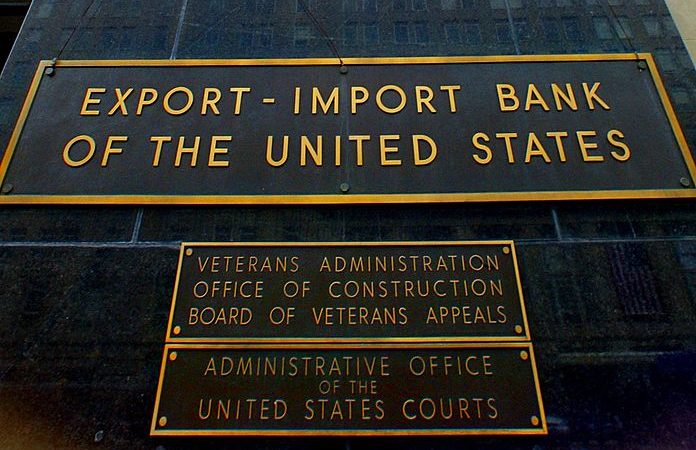According to a July report by government watchdog Open The Books, over 75 percent of funding from the U.S. Export-Import Bank (EX-IM) meant for small businesses were actually sent to larger corporations and organizations with ties to China and Russia.
Although small businesses seeking to expand their international markets are supposed to be the main recipients of government funding and loan guarantees, the majority of the cash is not going to them, the agency’s report said.
“Small businesses, supposedly the intended beneficiary of the Export-Import Bank, received only $54.8 billion of the over $234 billion in total assistance since 2007, or about 23 percent” Open The Books (OTB), the Chicago-based nonprofit agency that monitors and tracks government funding, said.
RELATED READING:
- Is Social Media Fake? Twitter Plagued by Artificial Intelligence Posing as Humans Pushing Communist China’s Propaganda: Report
- First Workplace Vaccine Mandate Religious Exemption Lawsuit Results in $10.3 Million Settlement
- Thanks, Inflation. 40 Percent of Americans Have No Money to Save, Even if They Want to
- Chinese Foreign Buyers Bought More US Real Estate Than Anyone Else This Year
By filing over 45,000 federal Freedom of Information Act requests totaling more than $6 trillion in public spending, and posting the checkbooks of 49 state governments, the watchdog aims to “post every dime in real-time.”
According to OTB’s findings, established corporations such as Boeing, Bechtel Corp., and General Electric Co., have been receiving the largest cash influxes when it comes to domestic funding — with the aerospace and aircraft manufacturing industry leading the pack — cashing in over $67 billion.
Success
You are now signed up for our newsletter
Success
Check your email to complete sign up
“Boeing subsidiary Boeing Satellite Systems International reaped $1.4 billion in assistance from 2007 to 2001. Major international airline companies like Ryanair, Emirates Airlines, and Air Canada have all received assistance for Boeing purchases. Boeing employs a small army of 18 lobbyists to advocate for the Export-Import Bank,” according to the report.
American industry winning big
Viewed as one of the most successful aerospace companies in the world, Boeing was by far the biggest beneficiary — receiving over 33 percent of Ex-Im’s funding — totaling over $66.4 billion.
Based out of Reston, Virginia, Bechtel Corp,. is the second largest aviation and engineering corporation behind Boeing. The company, which also oversees government-backed construction projects, received over $5 billion in funding for “petroleum engineering in wealthy countries like the United States, Australia, and India, as well as with governments like Serbia and Kenya,” the report noted.
Coming in third place was electronics and commercial aircraft manufacturer General Electric Co., (GEC) receiving over $4.7 billion in assistance through 265 transactions since 2007. The report added that GEC’s funding was split between its subsidiaries: General Electric International Operations Co. and General Electric Energy Parts.
International funding
Internationally, enterprises in Turkey, China, Russia, and Nigeria were also big recipients of U.S. funding. “While the United States sent billions of aid to some of the most corrupt countries and repressive regimes in the world, equally disturbing is the amount that went to wealthy countries that don’t need our aid,” the report said.
According to the report, the largest beneficiary of Ex-Im loans went to Nigeria — ranked in 149th place on a scale from least to most corrupt by Transparency International in 2020. “Importers in Nigeria received over $570 million from the Export-Import Bank. It would be a miracle if any of those dollars actually reached their intended recipient,” the report said.
The world’s second largest economy, China, was also a top beneficiary of Ex-Im resources — racking over $6.4 billion in funding since 2007. The report noted that Russian oligarchs, who control the majority of the country’s commerce, were also top contenders — receiving over $1.9 billion.
“Second to only the United States in GDP [gross domestic product], businesses in China nonetheless received more than $6.4 billion in U.S. Export-Import Bank assistance. Even amidst former U.S. President Donald Trump’s trade war with China, $128,062,638.20 flowed to China from 2017 to 2020,” the report noted.
















